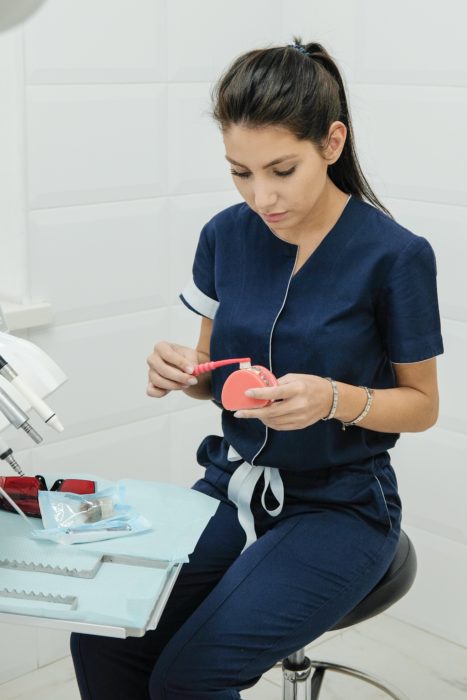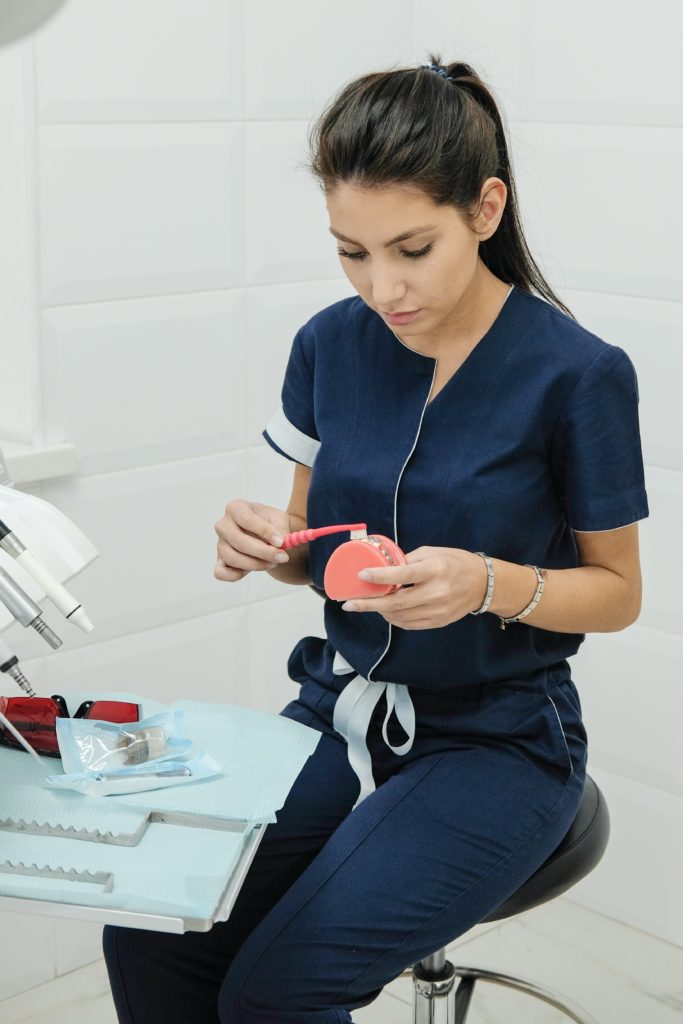BRUSH OR FLOSS FIRST ?

Want to know if you should floss or brush first? This question has been around for ages. I have scoured the internet searching for hours. The debates are endless, and I’m really not sure who is giving their opinions.
I decided to check out a couple of different articles, and show you what I have found. If you have been debating your Dentist for years or your family, let them check out the research articles below.
WHAT THE PROS SAY ABOUT BRUSHING OR FLOSSING FIRST: brush or floss first
Under the FAQ section, the ADA says flossing or brushing first are both “ok” as long as you’re doing a thorough job of each.
RESEARCH on brushing or floss first
In this article done by the Journal of Periodontology published in 2018, they led a study on the subject of testing subjects on flossing before brushing vs brushing before flossing. They tested the amount of fluoride on their teeth along with plaque levels on 25 dental students.
The results of the study show that flossing before brushing led to plaque levels lower in those that floss before brushing. Not only this, but there was a greater amount of fluoride in the plaque of the group that flossed before brushing.
Even though this was a small sample study, it brings a whole new level of information into the “brushing or flossing first” debate.
Related: Best Dental GADGETS OF 2021
“FLOSS BEFORE YOU BRUSH” ARGUMENT
There are arguments among many about why you should floss first. Let us know where you stand on the debate in the comments below, or you can let us know in the Dental Products Guy forum section.
The biggest and most important argument is that you should floss first because you might be “too lazy to floss after you brush”, and never get to it. If you make it a priority to floss first, then you’re still stuck with that odor in your mouth, which brushing helps to eliminate.
One reason you might want to floss first is that you will remove the plaque between the teeth first. Then, when you brush after flossing, the fluoride from the toothpaste will be more likely to get between the teeth.
Some people also argue that brushing after flossing will help clean away the plaque and food that flossing dislodges creating a cleaner mouth.
The toothpaste used after flossing also helps to remove the bad taste in your mouth.
Related: Complete Guide to Finding Your Best Toothbrush [10 Best Electric Toothbrushes on the Market today]
“BRUSH BEFORE YOU FLOSS” ARGUMENT
The benefits of brushing before you floss are that you get to remove all the plaque on the teeth, and then the floss will come in to clean between the teeth.
If you have fluoride on your floss, then that fluoride will be able to get onto the teeth.
Related: 7 Floss Picks That Are Amazing & ADA Approved 2020

What is the correct order to brush and floss?
In this article done by the Journal of Periodontology published in 2018, they led a study on the subject of testing subjects on flossing before brushing vs brushing before flossing. They tested the amount of fluoride on their teeth along with plaque levels on 25 dental students. The results of the study show that flossing before brushing led to plaque levels lower in those that floss before brushing. Not only this, but there was a greater amount of fluoride in the plaque of the group that flossed before brushing.
Are you supposed to brush your teeth before or after?
The biggest and most important argument is that you should floss first because you might be too lazy to floss after you brush and never get to it. If you make it a priority to floss first, then you're still stuck with that odor in your mouth, which brushing helps to eliminate.
Is it bad to drink water after brushing your teeth?
It's ok to have water after you brush your teeth if you rinse out your regular toothpaste first. If you are on a prescription fluoride toothpaste, you should not drink water because you will swallow the toothpaste. With prescription Fluoride toothpaste, you should not drink water until rinsing your mouth
Should I brush before I floss?
Research has found it to be more effective to floss before you brush. It leads to higher fluoride concentrations in the subject's plaque as well as less plaque on their teeth overall.